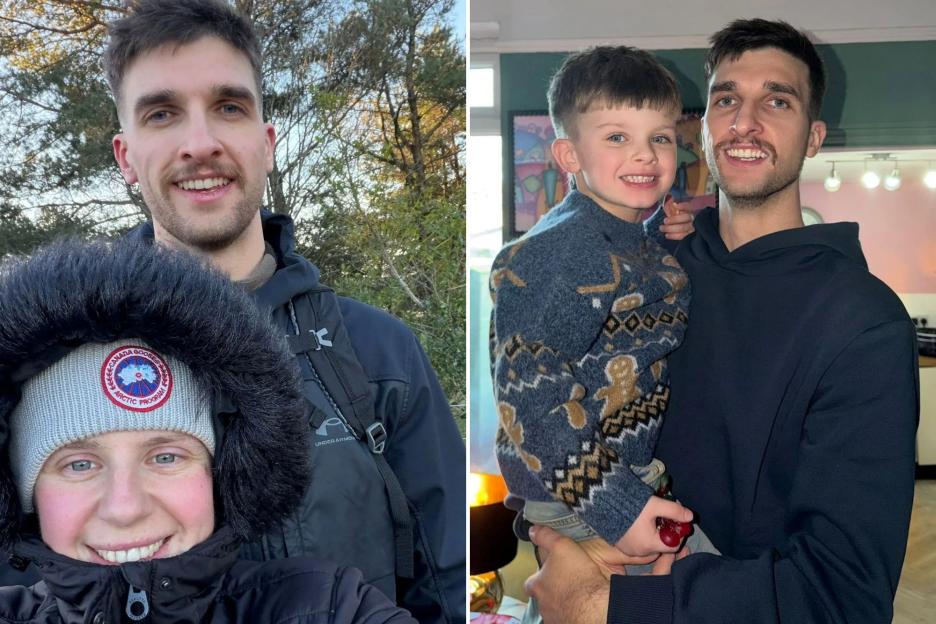GRACE Turnbull was just 14 when doctors told her to “stop being dramatic” over a supposed tummy bug, before she woke up paralysed.
“I’ve been told if they’d caught it sooner I may still have been paralysed but I may not have been as bad as I was,” the now 22-year-old says.
 Grace was 14 when she went down with what doctors thought was a ‘tummy bug’
Grace was 14 when she went down with what doctors thought was a ‘tummy bug’
 A few days later she was paralysed
A few days later she was paralysed
While doctors still don’t know exactly what happened to Grace, the call centre worker from Tyne and Wear is now permanently paralysed from the ribs down.
It all started in December 2016, when Grace, who loved to play football at the time, thought she had a stomach bug .
“It kept getting worse, so I went to the hospital on the fourth day of vomiting and they [medics] said ‘we think you’re okay it’s just viral'”, she explained.
As the days went by, Grace started to feel dizzy. Knowing this wasn’t right, she decided to head back to the hospital .
“I was really unwell with a really high temperature and I was white as a ghost but they [medics] told me to go home and stop being dramatic,” she said.
“It felt like I was stupid but I knew my body wasn’t right,” she added.
Then on boxing day while Grace was in bed, she tried to get up to go to the toilet but couldn’t move from the neck down.
At first, she thought it might be sleep paralysis , a medical term for when your brain is conscious, but your body is unable to move.
After being rushed to hospital, doctors discovered Grace had an infection of the nervous system, spinal cord and brain.
She is now permanently paralysed from the ribs down and had a catheter fitted to help her pee and has regular physiotherapy.
“It turned my life upside down. I was devastated [to be told I’d never walk again],” Grace said.
Doctors told her she could no longer play football.
“I was a really good footballer and football was my life so it was heartbreaking,” she recalled.
Initially, Grace was unable to speak properly.
“It was like a really bad stutter to the point I couldn’t get a word out. I used to use an app on my phone at school to try to talk,” she said.
“When I said my first word I had never been so happy in my whole life. I’ve never shut up since. It was an incredible feeling.
 Medics initally sent Grace home from hopsital
Medics initally sent Grace home from hopsital
 They later discovered Grace had an infection of the nervous system
They later discovered Grace had an infection of the nervous system
 She was unable to speak or sit her GCSEs properly
She was unable to speak or sit her GCSEs properly
Grace could also not sit her GCSEs “properly” as she was “so poorly” and ” in and out of school for a long time”.
Her paralysis also meant she struggled to eat and had to be connected up to a feeding tube.
“I only had 10 minutes of a normal day in between the seizures for three years after that,” she said
She added: “My house wasn’t adapted so I had to live in the living room for eight years. Being an adult and not having my own privacy, that was tough.”
Grace now wants to spread awareness that people should trust their instincts when they know something is wrong.
What is paralysis?
Paralysis is when you are not able to move some or all your body.
It can be temporary or permanent depending on what causes it.
Common causes of paralysis include a mini-stroke, a head injury, a a spinal cord (back) injury, Bell’s palsy or multiple sclerosis.
It can also be caused by a brain tumour or certain types of cancer like head or neck cancer.
Sometimes paralysis can be temporary, like having sleep paralysis, or long-term, like muscular dystrophy.
Symptoms of paralysis include:
- Not being able to move some or all of your face or body
- Your face or body is weak or floppy
- Your face or body is numb, painful or tingles all the time
- Your face or body is stiff with muscle spasms and twitches
This can start suddenly or gradually, or come and go.
You should call 999 if you or someone else has a has paralysis or weakness:
- That happened suddenly
- After a injury to the head, neck or back
- That causes problems with speech, breathing or swallowing
- That affects 1 side of the face (your face may droop on 1 side) or 1 arm (you may not be able to lift both arms and keep them there)
- And cannot feel part or all of your face and body, and you feel tingling
These problems could be a sign of something serious that needs to be treated in hospital straight away.
Do not drive yourself to A&E.
The person you speak to at 999 will give you advice about what to do.
Treatment for paralysis will depend on what’s causing it.
Temporary paralysis may go away on its own without medical treatment.
Things that can help people with paralysis include:
- Physiotherapy to maintain strength and muscle mass
- Occupational therapy to adapt to everyday tasks like getting dressed
- Medicines to relieve problems such as pain, stiffness and muscle spasms
Source: NHS
She said: “You know your body best so don’t let someone dismiss you just because they think they’re more knowledgeable.
“At the time I was upset but I just got on with it. There’s no point dwelling on it.
“I’m frustrated in some ways because I think ‘if it was caught sooner would my life look different’?
“But also everything happens for a reason.”
She added: “I’m still very sporty and used to play wheelchair rugby as an outlet.
“I’m looking into doing wheelchair racing because I was a cross country runner.
“Your life isn’t over just because you’re in a wheelchair. Just because I push around on wheels I’m just as capable as everyone else is.
“Even though my life is a lot different and it is tougher than maybe an able-bodied person, it’s still a really good life.”
NHS North East and North Cumbria Integrated Care Board declined to comment.
 Grace once loved to play football at the time
Grace once loved to play football at the time
 The 22-year-old wants people to trust their instincts when they know something is wrong
The 22-year-old wants people to trust their instincts when they know something is wrong







